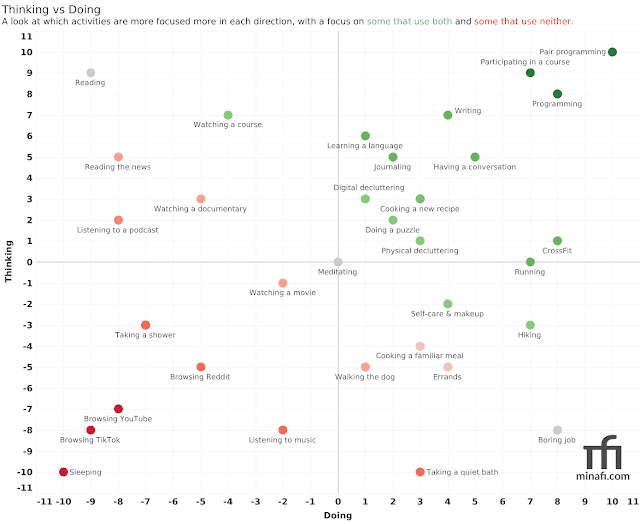Goals
Goals excite you. These are things that you look and you say “fuck yeah”. They’re what you think about when your mind wanders and what causes you want to get out of bed in the morning.
These don’t need to be realistic. I love the idea of having some goals that could be accomplished in months, some in years and some (maybe) in decades.
The goals themselves are things I want to do – regardless of my progress. The habits are clear units of work that are fun and interesting. And the themes are realistic.
Themes
Themes are a specific step you can take towards that goal. For every goal, there are many different themes. Understanding and deciding on a theme to work towards a goal is key. I prefer to pick something that I know I can accomplish in a few months.
For example, for my learning Polish example – my theme might be “Build up vocabulary to read books for children under 5”. It’s a step on the road to my goal.
You could call these sub-goals, target objectives or whatever you want, but I like the idea of themes. No one says “I’m going to accomplish this theme by <date>”. Themes keep the next step unbound from time. You can work on a theme, but without a set date to complete it.
If you need a set date for something – make that a goal instead. If it’s small enough maybe you don’t need a theme in that case. The tricky part (to me at least) is knowing that a theme is possible in a few months.
Since there are so many different themes you could pick for any goal, I like to create a list of everything I can think of. From there, I’ll pick one theme to target that excites me and work towards it. I choose to make this something that is small enough to be significant once accomplished, but far enough that it’ll last at least a month (ideally a few months).
Habit
The smallest units of work are habits. These are the “how” of your goal. Habits also change over time. The habit you use to start down the road towards a goal could be completely different than the habits from later.
To me, a habit is something I can put on a to-do list and check off in a single day. Depending on the habit they might take a few minutes to hours.
Habits are an investment in your future-self. Alone they may not be impressive. Just like with financial investments though, they’ll compound over time.
Every action you take is a vote for the type of person you wish to become. No single instance will transform your beliefs, but as the votes build up, so does the evidence of your new identity. In the meantime I’ll continue to focus on habits.
Shifting my mindset from wanting to be done to wanting to make progress has been incredibly effective for my mental health and more productive too.





